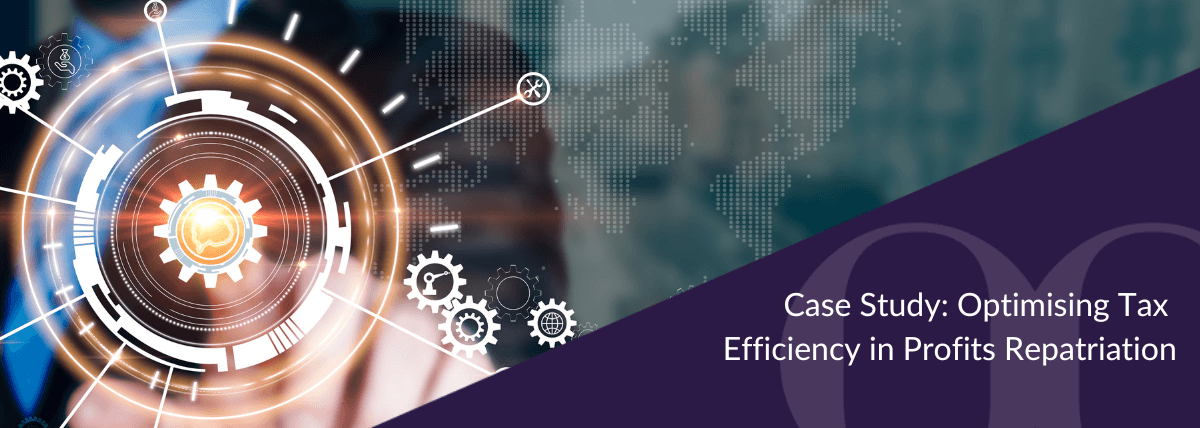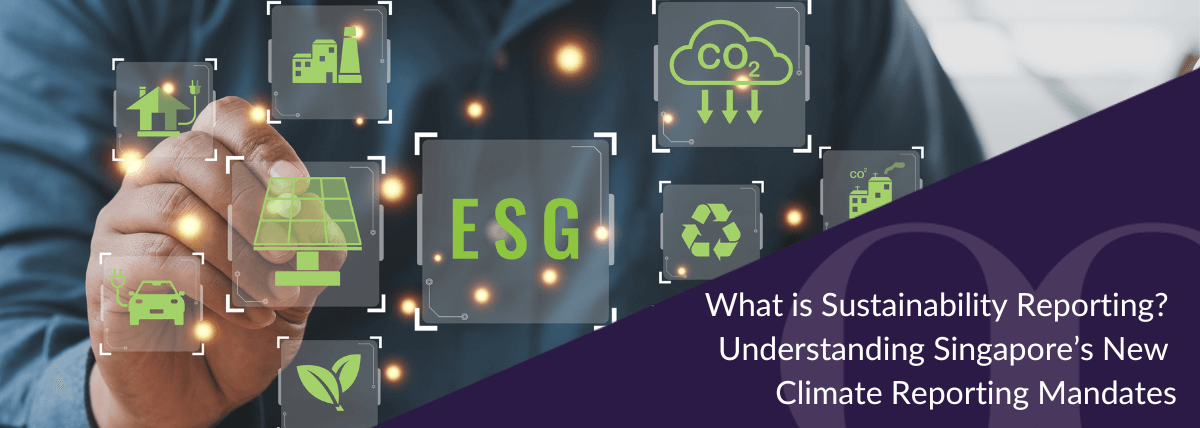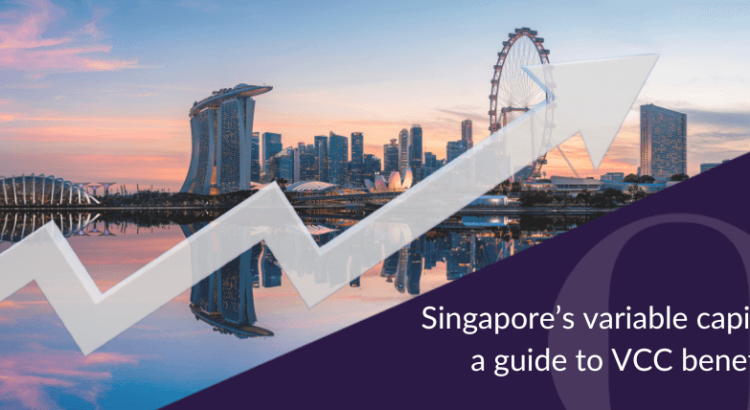Global Mobility Tax Solutions
Given the increasing mobility of the global workforce, global mobility tax solutions are essential, specialised services that assist companies and their employees in navigating the complexities of tax implications associated with international assignments. As your businesses expand globally, you may send employees to work in different countries, resulting in various tax obligations and compliance challenges.
According to Eunice Hooi, Managing Director, Asia, Tax and Accounting, “International assignments are transformative opportunities for organisations and employees alike, but they come with a myriad of tax challenges. Managing global mobility through effective tax strategy ensures success at every turn, enabling employers to unlock the full potential of their global workforce while navigating the complexities of the global tax landscape.”
Managing international assignments demands a well-rounded tax strategy. In this article, we take a deep dive into Global Mobility Tax Solutions and explore the essential components of a successful framework.
What are Global Mobility Tax Solutions?
Global mobility tax solutions encompass a comprehensive framework designed to address the complex tax challenges faced by organisations and employees engaged in international assignments. Key elements include pre-assignment planning, where potential tax obligations and residency issues are assessed, ensuring compliance from the outset. During the posting, ongoing support is provided for tax filings and audit assistance, helping employees navigate local regulations. Post-assignment, processes like tax reconciliation, repatriation tax planning, and exit tax planning are implemented to manage financial impacts and ensure smooth transitions.

The Framework of Global Mobility Tax Solutions
Global mobility tax solutions typically follow three key phases: preparation and implementation as well as reflection and ongoing support. Each of these steps together ensures effective deployment and compliance, which contributes to the long-term success of global mobility solution.
Phase 1: Pre-Posting Preparations
Before you begin searching for options, the first step is to understand the needs of your company.
Policy Development
Your solution should first establish the framework for how your organisation manage international assignments and the associated tax implications. Your policy should clarify the objectives of the global mobility program, specify the tax responsibilities of both the employer and employee, and outline the support and resources available to help employees navigate complex tax regulations. The policy should be fair, transparent and compliant with the relevant tax regulations in both the home and host countries.
The policy should be a living document, regularly reviewed and updated to reflect changes in tax laws, business needs, and employee feedback. This adaptability ensures that the mobility program remains relevant and effective.
Compensation Structuring
Design a compensation package that is equitable and encourages employee success during international assignments, one that not only attract and retain top talent but also strategically minimise tax liabilities for both the company and the employee. Consider the following when structuring compensation for your employees:
- Base Salary:The base salary often requires adjustment to reflect the cost of living in the host country. This can involve conducting a cost-of-living analysis to ensure employees maintain their purchasing power while factoring in host country variables such as tax.
- Allowances and Benefits:Various allowances, such as housing, relocation, and education benefits, are typically included in the compensation package. These allowances should be tailored to the employee’s situation and consider factors like family size and specific needs.
- Incentives for Assignment:To motivate employees to accept international assignments, organisations may offer additional incentives, such as bonuses or retention payments. These incentives can be possible solutions to enhancing the attractiveness of the assignment and encourage employees to support the organisation’s global mobility
By carefully planning compensation structures, companies can avoid costly tax implications and employees can benefit from a more favourable financial outcome during their international assignment.
Tax Consultation and Planning
With compensation established, both employers and employees need to be made aware of their tax obligations in the home and host countries, so they can make informed decisions before an international assignment begins. This involves conducting thorough tax consultations to assess the specific tax situations of both parties, including an evaluation of the employee’s tax residency status. Understanding income tax, social security contributions, and any applicable tax treaties such as double taxation agreements ensure clarity on potential tax liabilities.
Comprehensive guidance is provided to navigate these obligations, helping to optimise tax outcomes while ensuring full compliance with the relevant tax laws in both jurisdictions.
Preparation of Assignment Agreement
When everything else is in order, you can begin to prepare the assignment agreement. This document outlines the terms and conditions of an employee’s international assignment, ensuring clarity and alignment between the employer and the employee. Including the existing elements above, your agreement should also list the following:
- Termination and Repatriation: Conditions under which the assignment can be terminated should be clearly defined. Additionally, provisions for repatriation upon completion of the assignment—including support for relocation and reintegration into the home country—should be outlined.
- Support and Resources: The agreement should detail the support offered to the employee during the assignment, such as access to tax consultants, relocation services, and ongoing communication regarding compliance and regulations.
Phase 2: During-Posting Dynamics
Once the agreement is finalised and the position has been filled, the During-Posting Dynamics phase begins. This phase is crucial as it requires ongoing attention to tax strategies to navigate the intricacies of international tax laws effectively and ensure the well-being of your global talent.
Tax Equalisation
The primary goal of tax equalisation is to maintain tax neutrality for the employee, so they do not experience a financial gain or loss due to differing tax systems in their host country. Essentially, it allows the employee to pay taxes as if they had remained in their home country, with the employer typically covering any additional tax burden incurred in the host country.
Generally, organisations will calculate an estimated home country tax liability based on the employee’s salary and applicable tax laws. This figure serves as the benchmark for determining what the employee should pay in taxes during their assignment. Keep in mind that once the amount has been established, you may need to adjust your withholding practices to account for the employee’s estimated home country tax liability. Also, once the assignment has been completed, a reconciliation process is usually conducted, involving a comparison of the actual taxes paid by the employee in the host country against the equalised amount. This ensures tax neutrality for the employee while keeping the assignment cost-neutral for the company.
Tax Filing Assistance
As employees often face unfamiliar tax regulations in a host country, offering tax filing assistance to employees who are part of your company’s global mobility program helps ensure that your employees are compliant with tax obligations in both their home and host countries. This support helps mitigate the complexities and potential pitfalls associated with international tax regulations. Tax filing assistance includes guidance on the specific filing requirements, deadlines, and any local tax obligations that apply, helping employees navigate these complexities.
Organisations may also want to offer access to tax professionals who can prepare and file tax returns on behalf of employees. This solution ensures that the filings are accurate and compliant with local laws, reducing the risk of errors and potential penalties.
Cross-Border Tax Management
Ongoing adjustments to the tax strategy are key to ensuring an efficient and cost-effective approach throughout the assignment. During the assignment, continuous review of tax planning strategies is essential to optimise the employee’s tax position and minimise tax liabilities across borders. This involves regularly assessing changes in tax laws, both in the home and host countries, to ensure compliance and identify opportunities for tax savings. By actively managing this, employers can help employees reduce their tax burden while maintaining alignment with local and international tax regulations.
Tax Audit Assistance and Support
Regular monitoring of the employee’s tax situation ensures compliance with local tax regulations and timely submission of tax filings, minimising the risk of audits. In the event of a tax audit, tax audit assistance includes preparation of documentation to defend tax positions and access to tax advisors, as well as assistance with appeals, negotiations, or adjustments to tax filings based on audit results.
Phase 3: Post-Posting Reflections
Once the employee’s assignment concludes, your company should evaluate the effectiveness of your global mobility tax strategy. This evaluation will help determine if the desired outcomes have been achieved, and whether you need to make adjustments to adjust for future solutions.
Tax Reconciliation and Settlement
After an assignment ends, tax professionals perform final calculations to determine the actual tax liabilities for the employee in both the host and home countries. Tax reconciliation and settlement ensures that all tax-related matters are resolved following an employee’s international assignment, which not only mitigates potential financial risks for both the employee and the organisation but also enhances trust and satisfaction in the global mobility program. The solution includes tax filing reviews and settlements, as well as any documentation and reporting.
Repatriation Tax Planning
When the employee has returned from the assignment, the company should provide ongoing tax support and advisory services to ease the transition. Repatriation tax planning helps to minimise tax liabilities and ensure compliance with both home and host country regulations. This not only protects the employees under the mobility program from unexpected liabilities but also contributes to the organisation’s reputation as a supportive employer in the global talent market. Solutions include a review of the tax obligations incurred during the assignment, including capital gains and wealth taxes while factoring the tax treaties between home and host countries.
Cross-Border Tax and Retirement Planning
Cross-border tax and retirement planning addresses the complexities that arise when employees return home after an international assignment. It ensures their financial and retirement strategies remain effective and compliant across jurisdictions. This includes providing guidance on the tax implication of any remaining assets or investments in the host country, as well as offering guidance on cross-border retirement planning, including pension contributions, social security implications, and tax-efficient withdrawal strategies.
Exit Tax Planning and Compliance
When an employee leaves a country, they may be subject to exit taxes on unrealised gains and assets. While this can vary depending on the country, understanding and managing exit taxes can help mitigate financial burdens and ensure compliance with various tax regulations. Companies can provide guidance on final tax filings and payments required in the host country. This will help employees navigate the complexities of the process, and ensuring all obligations are met before departure.
Funding and Grant Support from Enterprise Singapore
Enterprise Singapore offers funding and grants to support companies in their ESG journey, such as the Enterprise Development Grant (EDG) which provides support for projects aimed at upgrading, innovating, growing, and transforming your business. There is a small window for companies to take advantage of this grant. From 1 April 2023 to 31 March 2026, under the EDG, small and medium-sized enterprises (SMEs) can receive up to 70% support for sustainability-related projects. EDG covers eligible project costs, including third-party consultancy fees, software and equipment expenses, and internal manpower costs.
As a Registered Management Consultant (RMC) with Enterprise Singapore, Tina emphasises, “Navigating climate-related challenges and opportunities requires not just compliance but strategic foresight. Our goal is not just to help companies meet the reporting standards, but also access funding to drive impactful climate initiatives.” This approach ensures that companies enhance their sustainability strategy while securing the financial support needed for their climate goals.

A Holistic Approach to Global Mobility Tax
Global Mobility Tax Solutions involve a comprehensive set of strategies designed to manage the tax complexities of international assignments. Key elements include pre-assignment planning, which assesses tax obligations and residency status, followed by during-posting support that ensures compliance and addresses ongoing tax issues. Tax audit assistance is provided to navigate potential audits, while tax reconciliation ensures final liabilities are settled post-assignment. Repatriation tax planning evaluates the tax impacts upon returning home, and exit tax planning addresses tax obligations when leaving a host country. Throughout these stages, clear communication and employee support are vital to optimise tax outcomes and enhance the overall mobility experience.
How BoardRoom Can Help
To ensure that both you and your employees minimise taxes while being abroad, consider partnering with a trusted provider for your international accounting and tax needs. With over 50 years of experience, BoardRoom has assisted countless businesses worldwide with comprehensive global mobility tax solutions, including record-keeping and cross-border transactional management.
Get in touch with BoardRoom today to explore how our international accounting and tax services can provide you with peace of mind while you grow your business.
Contact BoardRoom for more information:
Related Business Insights
-

17 Oct 2024
Payroll Best Practices: Your Guide To Financial Services Payroll Management
Effective payroll management in financial institutions is key to compliance and risk reduction. Find out what you c …
READ MORE -

06 Sep 2024
Case Study: Optimising Tax Efficiency in Profits Repatriation
Discover how BoardRoom's two-step tax approach helps a multinational conglomerate evaluate tax-efficient profit rep …
READ MORE -

27 Aug 2024
What is Sustainability Reporting? Understanding Singapore’s New Climate Reporting Mandates
Understand what is sustainability reporting and why it’s important beyond compliance. Find out what changes you n …
READ MORE





































